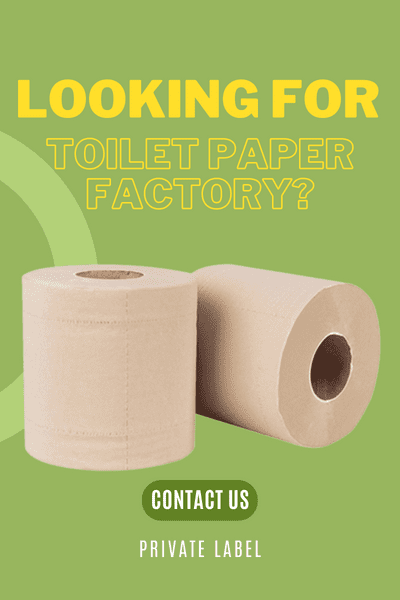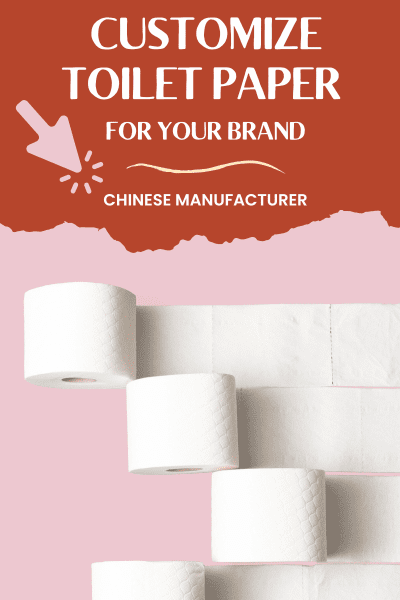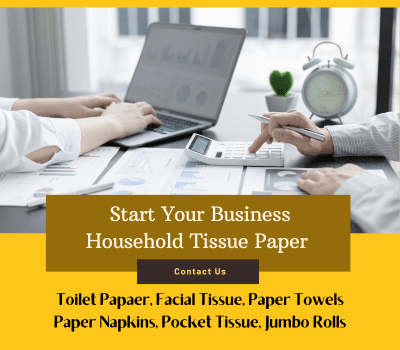The Price Paradox: Why Does a “Cheap Plant” Produce Premium Paper?
“We are committed to sustainability, but the time and money we spend on certifications each year often leave our team exhausted.”
— Li Ming, Director of a Bamboo Pulp Factory in Fujian, China
Bamboo is one of the fastest-growing plants on Earth—technically a grass, not a tree—and regenerates naturally without replanting. It sounds like the perfect low-cost, high-efficiency material for paper. And yet, bamboo toilet paper often costs 30–50% more than its wood pulp or recycled paper counterparts.
Example: A standard virgin wood toilet roll may retail for $0.40–$0.50, while comparable bamboo rolls from brands like Who Gives A Crap or Reel Paper are priced around $0.70–$0.90—even for bulk purchases.
This contradiction hasn’t gone unnoticed. Google and Baidu data show that the query “Why is bamboo toilet paper so expensive?” averages over 1,200 daily searches, particularly in regions where eco-consciousness is on the rise.
This article breaks down the reasons behind the price premium through three key lenses: environmental certification, processing complexity, and strategic positioning.
1. Environmental Premium Is Not Free
“Our FSC audit documents fill two cabinets. Behind every eco-label lies a mountain of hidden costs.”
— Brand Manager at a Zhejiang-based Bamboo Paper Export Company
While bamboo requires fewer inputs to grow, producing certified, sustainable bamboo toilet paper is a costly undertaking.
The Real Cost of Certification
FSC (Forest Stewardship Council) certification is widely recognized, but often misunderstood. Based on supplier data:
- Initial FSC audit fee: $3,000–$5,000
- Annual renewal & compliance: ~$2,000/year
- Chain of Custody systems: $1,500–$3,000 setup
- Added cost per ton: $6–$10 when averaged across 800–1,200 tons/year
For smaller factories, these costs can make up 8–12% of their per-roll pricing base, especially when combined with other certifications like BPI, USDA Organic, or ECOCERT.
In contrast, many conventional brands skip such certifications altogether, significantly cutting operational expenses.
2. Bamboo Is Harder to Process Than You Think
“Bamboo is harder to break down than wood, and once turned into pulp, it’s more delicate—requiring higher-spec machinery.”
— Zhang, Senior Engineer at a Bamboo Fiber Processing Firm in Guangdong
Despite its fast growth, bamboo poses technical challenges during processing.
Specialized Equipment = Higher CAPEX
Bamboo pulp production requires:
- Custom bamboo shredders and fiber cleaners
- Enzymatic softening systems for flexibility
- Multi-stage degumming units to remove silica and sugars
A mid-sized bamboo pulp line costs $620,000–$700,000, versus $450,000–$500,000 for wood pulp lines—a 20–30% higher capital investment.
Higher Operating Costs
Bamboo’s dense fibers and silica content lead to:
- Faster blade wear
- Frequent filter replacement
- More stringent sanitation requirements
The result: increased downtime, higher maintenance costs, and shorter equipment lifespans.
3. Strategic Pricing and Market Positioning
“Our audience is willing to pay more for sustainability. It’s not just about cost—it’s about values.”
— Reel Paper Brand Representative, in Treehugger Interview
Limited Supply, High Demand
A quick scan on Alibaba reveals:
- 3,000+ results for “bamboo toilet paper”
- 60% of best-sellers tied to just 5 Chinese suppliers
- Top listings boast 3,000+ units sold, underscoring strong B2B demand
Yet, few factories worldwide are equipped to handle bamboo pulp, creating a supply bottleneck.
Global Logistics & E-commerce Costs
Eco brands selling DTC face:
- Amazon FBA fees: ~15% per order
- Cross-border shipping surcharges: $0.10–$0.25 per roll
- Eco-packaging costs: Biodegradable film adds ~$0.30 per roll
Value-Based Pricing Models
Brands like Cloud Paper and Who Gives A Crap use value-based pricing, not cost-based. Their target buyers include boutique hotels, organic retailers, and parents of infants—audiences willing to pay 150–200% more for trusted sustainability.
4. Will Bamboo Toilet Paper Ever Get Cheaper?
“Our new enzymatic pulping method may reduce energy consumption by over 30%.”
— Dr. Huang, Lead Engineer at a Southwest China Pulp Research Institute
Tech Innovations
New techniques in enzyme-assisted refining and fiber crosslinking are being tested in China and Germany. Early data shows:
- Up to 30% reduction in energy use
- Noticeable improvements in softness and fiber resilience
Vertical Industrial Clusters
Industrial parks like the Sichuan Bamboo Industry Zone are enabling:
- Shorter supply chains
- Co-located harvesting, pulping, and packaging
- Up to 18% logistics cost savings
Eco-Driven Consumer Shifts
According to PwC’s 2024 study:
- 67% of Gen Z & Millennials are willing to pay 15–20% more for sustainable household goods
- “Biodegradable” and “plastic-free” labels outperform price and softness in purchase influence
Policy Momentum
With the EU Plastic Tax and EPR (Extended Producer Responsibility) legislation rolling out globally, bamboo’s eco advantage is gaining regulatory support.
5. Sustainability Controversies: Not All Green Claims Are Equal
Despite its positive image, bamboo toilet paper is not without critics.
Emissions from Global Shipping
Most bamboo products are produced in China and Southeast Asia, requiring long-distance transport. By contrast, locally produced recycled paper has a significantly lower transportation footprint.
A 2023 EU study showed 35% lower carbon emissions for EU-made recycled paper compared to imported bamboo rolls.
Chemical Use in Pulping
While bamboo needs less bleaching, it still requires:
- Enzymatic and chemical softeners
- Proper disposal systems for residual waste
Greenwashing Concerns
Forbes’ 2022 review stated:
“Many bamboo brands focus on storytelling rather than measurable impact—such as emissions, water use, or chemical output.”
Real User Voices
“I didn’t know toilet paper could be this ethical. Once I read about how bamboo grows back without replanting, I was hooked. It’s worth the extra cost.”
— Linda C., Eco-conscious Consumer, USA
“We buy bamboo paper in bulk from Alibaba. It’s softer, and switching felt like the easiest way to be more sustainable as a family.”
— Faisal H., Bulk Buyer, UAE
Final Takeaway: The Price Reflects the Purpose
Bamboo toilet paper is still maturing. While current prices reflect infrastructure gaps, certifications, and shipping logistics, the direction is clear: consumer demand is rising, and innovations are accelerating.
The real question is not whether bamboo toilet paper is too expensive—it’s whether our current paper habits are too cheap for the planet.
FAQs
Q: Why is bamboo toilet paper more expensive than regular toilet paper?
A: Due to its higher production costs, certifications, and global logistics.
Q: Is bamboo toilet paper truly eco-friendly?
A: Yes. It’s fast-growing, biodegradable, and requires less replanting or pesticides.
Q: Is bamboo toilet paper safe for septic systems?
A: Absolutely. It breaks down easily and is RV- and septic-safe.
Q: Will bamboo toilet paper prices drop?
A: With better tech and local manufacturing, prices are expected to fall.
Q: Is it worth the premium?
A: If sustainability and skin safety matter to you, most consumers say yes.
Q: Bamboo or recycled—what’s better?
A: Bamboo is softer and renewable; recycled reduces post-consumer waste. Choose based on your priorities.



